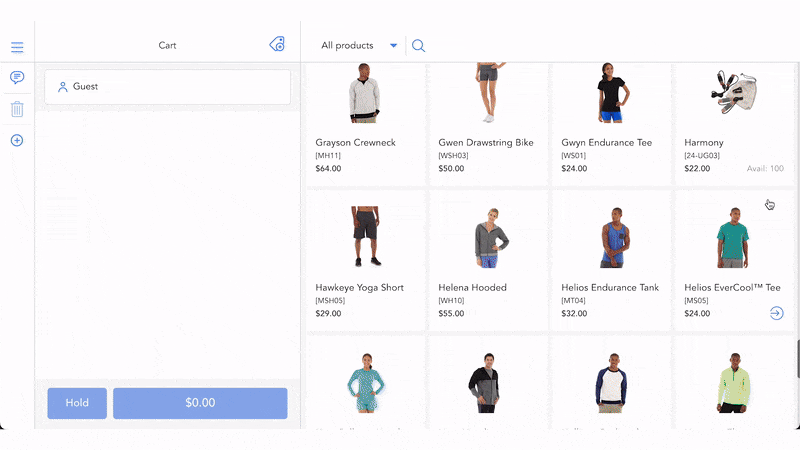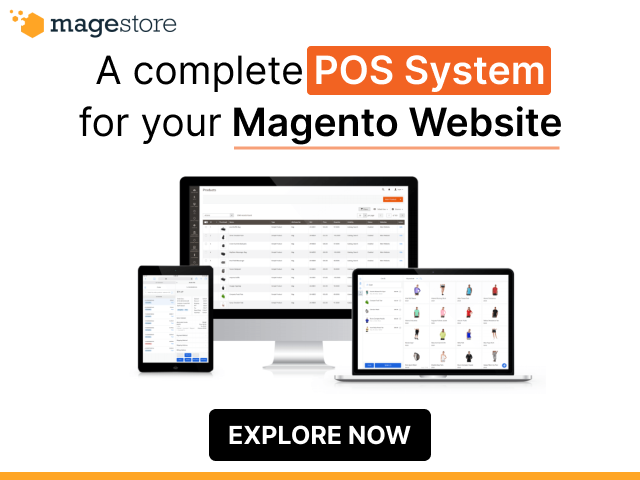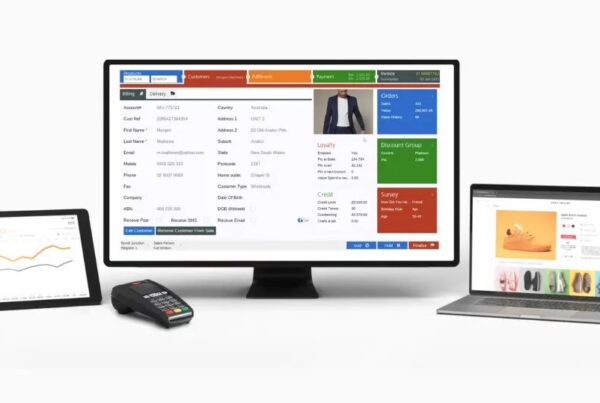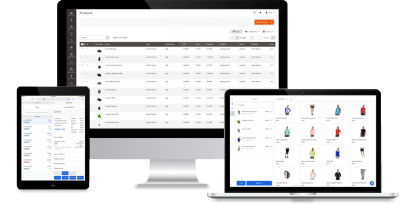The primary concerns in managing an omnichannel presence with a Revel POS Magento integration are synchronization capabilities and integration costs. These challenges prompt an essential question for Magento store owners: “How can they effectively integrate Revel POS with the Magento platform while minimizing complications and costs?”
Understanding this, Magestore explores 4 optimal ways to integrate Magento 2 with Revel POS, including an often-overlooked alternative that could save you time, money, and headaches. So, if you’re already using Revel or planning to use Revel as your Magento POS, read on for what is likely the simplest and most efficient way to connect your online and brick-and-mortar stores.
- Why need Revel POS Magento integration
- 4 ways to connect Magento with Revel POS
- 3 top popular solutions to integrate Revel POS and Magento
- 5 tips for a smooth Revel POS and Magento integration
- Drawbacks of using Magento Revel POS connector
- Magento-native POS: The potential alternative to Revel and Magento connectors
Why need Revel POS Magento integration?
Integrating Revel POS Magento 2 offers many advantages. Following are several compelling reasons why such integration should be undertaken:
- Real-time data sync: Revel POS instantly synchronizes sales, inventory, and customer data between your physical stores and Magento.
- Centralized administration: By integrating Revel POS Magento, the business can manage product lists, prices, and customer information on a single dashboard.
- Improved omnichannel customer experience: Revel POS Magento integration enables in-store pickup and order routing, which improves the fulfillment process and potentially enhances customer satisfaction. Customers will have a seamless shopping experience, whether online or in-store.
- Improved order fulfillment: The integration makes implementing “buy online, pick up in-store” (BOPIS) or ship-from-store options easy. Orders placed on the Magento site can be fulfilled with inventory from physical stores managed by Revel POS.
- Unified customer data: The merging of the Magento 2 Revel POS enables businesses to have a common repository for all customer data. This takes into account the purchase history across online and offline channels, which in turn allows for more targeted marketing and customer service.
- Streamlined reporting: With online and offline sales channel data, merchants can generate more complete reports. So, you’ll have better visibility on overall performance, popular products, and customer behavior across all channels.
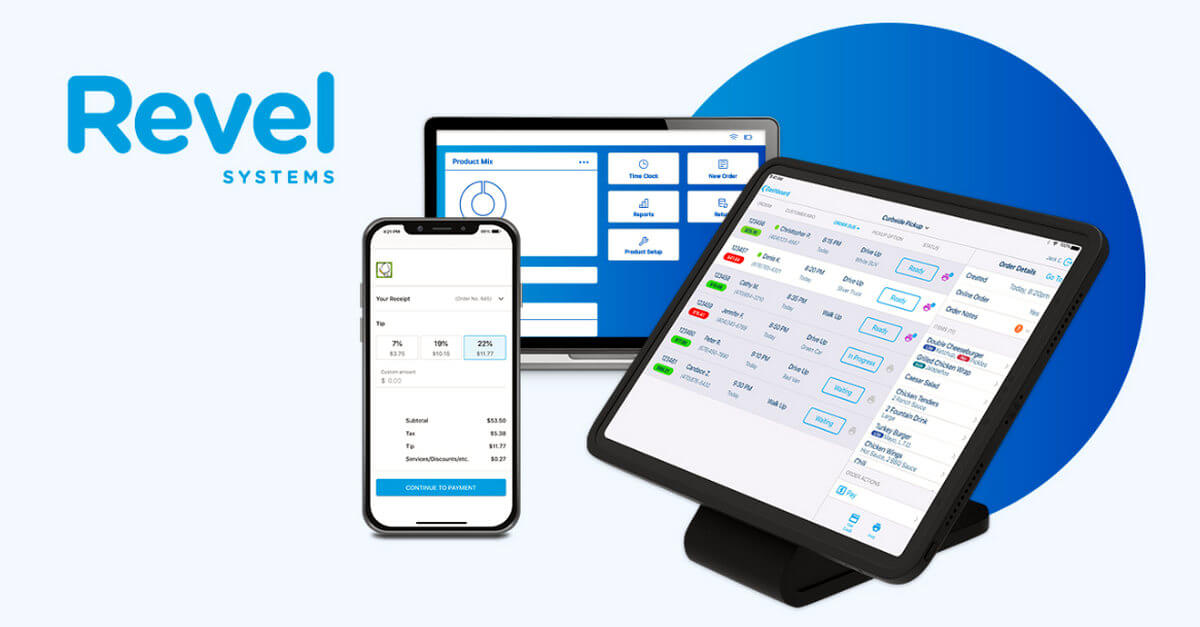
Now that we’ve explored the benefits of connecting the Revel POS system and the Magento eCommerce platform, we can check your options. There are 4 most common ways to integrate them. Each has its strong points and things to consider. We’ll detail these options below, from 3rd-party connectors to custom API integrations and enterprise-level solutions.
4 ways to connect Magento with Revel POS
You can connect Magento with Revel POS in four different ways, and the best method for you will depend on your business’s technical architecture, requirements, and what you want to achieve from your integration.
- If your business wants to connect Magento and Revel POS with minimal customization, then a 3rd-party connector with customizations is the easiest option.
- Revel POS and Magento APIs could be ideal for businesses with unique customization needs or an in-house tech team. However, while this approach offers great flexibility, most companies don’t need such extensive customization to justify using it.
- If your business strategy involves connecting multiple systems beyond Magento and Revel POS, consider using an integration platform (iPaaS).
- Enterprises with large-scale operations and complex IT structures should consider an Enterprise Integration Platform (EiPaaS), an enhanced version of iPaaS that expands integration capabilities across the organization.
Let’s take a close look at each of these options:
Using a 3rd-party connector
Since Revel POS doesn’t work directly with Magento and lacks a pre-built first-party connector, a third-party connector will act as a bridge to help the two systems communicate.
How It Works: The connector shares inventory levels, orders, customer information, and any other data the business requires between the two systems. If one system sells an item, the connector updates this information in the other system.
Pros | Cons |
|
|
Using the APIs of Revel POS Magento
The second method requires the application programming interfaces (APIs) Revel POS and Magento to be provided to create a custom integration.
How it works: The business’s in-house or outsourced development team builds a custom integration using Magento and Revel’s APIs from scratch. This can sync orders, inventory, customers, and any other data the business requires.
Pros | Cons |
|
|
Using an integration platform as a service (iPaaS)
iPaaS platforms like Reachware have tools that allow you to connect various applications and automate workflows with little to no coding required.
How it works: Merchants can create workflows that automatically move data between Revel POS and Magento whenever triggered by an event (e.g., when a sale is made).
Pros | Cons |
|
|
Using an enterprise integration platform (EIP)
Enterprise Integration Platform as a Service (EiPaaS) solutions like MuleSoft and Dell Boomi offer powerful tools to integrate multiple systems within an enterprise. They address several limitations of traditional iPaaS platforms, such as handling high data volumes and managing complex integrations.
However, if pre-built connectors aren’t available, these platforms may require businesses to develop them for specific integrations, like Revel POS and Magento.
For example, MuleSoft’s Anypoint Exchange—a marketplace where developers and organizations can access pre-built components to accelerate integration development—doesn’t currently offer connectors for Magento and Revel, meaning businesses must design their integration workflows.
How it works: In integrating Magento and Revel POS using an EIP platform, the platform functions as a middleware solution, facilitating communication and data exchange between the two systems.
Pros | Cons |
|
|
3 top popular solutions to integrate Revel POS and Magento
Integrating Revel system and Magento 2 can help you manage your business more quickly and effectively. But be sure to select the suitable connector to make it happen, as not all connectors are built equal.
Many solution providers have developed special connectors between these two powerful platforms. Kosmos, Commercium, Reachware, and iPaaS.com are some of the leaders in the market due to their unique features and advantages:
Connector | Key features | Pricing | Pros | Cons | Customer reviews |
Kosmos eSync |
|
|
|
|
|
Commercium |
|
|
|
|
|
iPaaS.com |
|
|
|
|
|
5 tips for a smooth Revel POS and Magento integration
Revel POS Magento integration can enhance your business operations by streamlining sales, inventory management, and customer data. Here are vital tips to ensure a successful integration:
1. Assess your integration needs
Before you start the integration process, properly assessing your business needs and requirements is essential. This will help you determine the most critical features and functionalities needed in your Revel POS Magento integrated system. Some points to consider are:
- The volume of transactions you handle daily
- The complexity of your inventory management
- Your reporting and analytics needs
- Any industry-specific features you require
- Future scalability expectations
2. Choose a reliable integration method
Secondly, securing your integrated system from potential security threats is vital. Merchants need a comprehensive security strategy that protects their and their customers’ data. Strictly speaking, EIP platforms offer more robust security measures than iPaaS platforms, but they come at a much higher cost.
The following are the trusted Magento Revel POS integrations:
- Implement robust encryption protocols that protect data while it’s being sent and at rest
- Setting up secure API connections with proper authentication
- Regularly upgrade Revel POS and Magento to the latest version
- Establishing strict user access controls and permissions

3. Ensure real-time synchronization
Real-time data updates are essential to keep the accuracy of your integrated system. Implement a robust synchronization strategy that has low latency and achieves data consistency. This will include:
- Immediate inventory adjustments across both platforms
- Instant reflection of online orders in your POS system
- Up-to-the-minute sales reporting
- Automated reconciliation processes
4. Test thoroughly before launch
Testing at a granular level should fit in seamlessly and not impact your business processes. Hence, ensure you come out with an exhaustive test plan that caters to the integrated system, i.e., including the below tests:
- Test syncing the necessary data between the two systems
- Stress test to ensure performance under high load
- Test the integration’s error handling and recovery procedures
- Test user acceptance testing with your staff
Drawbacks of using Magento Revel POS connector
It’s worth mentioning that Revel POS doesn’t have a native integration with Magento. You will need to choose a 3rd party connector to integrate. So you may face data syncing issues and, in some cases, integration bugs as well, as mentioned below:
1. Data mismatches and inaccuracy
The indirect Magento to Revel POS connection may cause some data inactivity, delays, or mistakes. This kind of instability may lead to
- Orders not being created automatically in real time
- Stocks not being lowered or incremented correctly, and vice versa
- Customers’ data not being updated accordingly
For example, if the connection goes off during a transaction, your store inventory will be off in POS and Magento.
2. Complexity in troubleshooting
With multiple systems in the mix, it becomes even more challenging to identify the problem. It’s difficult to know if Magento is having an issue or if it’s Revel POS or the connector itself. This can translate into extended downtimes and require more technical expertise to resolve things.
3. Higher total cost
Using Revel POS connector for Magento will increase your overall operational costs. This is because you will have to pay an extra fee for the connector, such as:
- Subscription fees for the connector
- Charges for technical support
- Expenses related to regular updates and maintenance to ensure compatibility between systems.
Additionally, you must pay Revel POS subscription fees of $99 per month per terminal, with a minimum purchase of two terminals and a contract of at least two years. Revel POS pricing is among the highest compared to other systems.
As your business develops and grows, you may require more advanced features (which means additional costs). If you plan to scale quickly, your store will need extra equipment for each new location. Over time, these factors will impact your profit margins, making it an important consideration when deciding whether or not to use a third-party connector.
4. Performance issues
The integration can slow your system, particularly at busy times when it matters most, and therefore impact the performance overall. In such cases, the transaction processing speed may be slower and create longer wait times for users. This can result in lost sales during peak periods.
5. Security concerns
3rd-party connectors can introduce security vulnerabilities, and your data could be at risk. Every additional integration is like a door for hackers to get in, and you want to make sure the connector you use is secure to protect your business and customer data.
Magento-native POS: The potential alternative to Revel and Magento connectors
Suppose Revel Magento integration is appealing because of the feature set. Another consideration that may be a more straightforward and more elegant solution for existing Magento users is to select a Magento native POS system like Magestore POS.
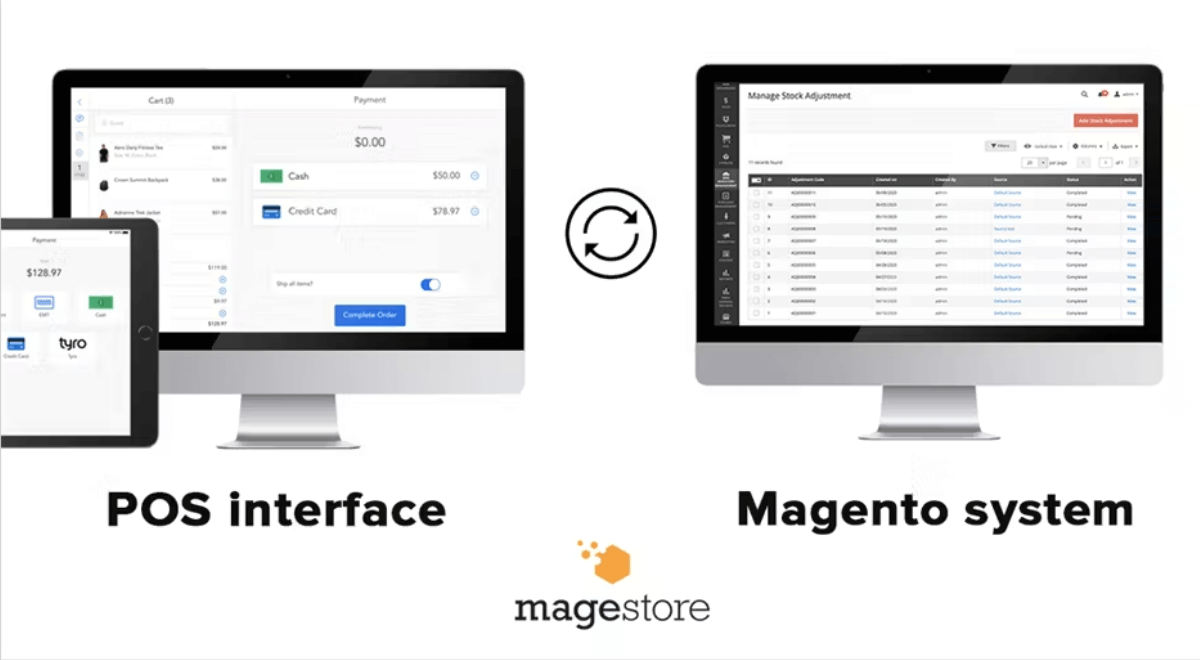
Magestore POS is the perfect solution to sync data between your Magento website and physical store(s). Being a native Magento POS, you can easily install Magestore POS to your Magento site without integration via 3rd party connector or any complicated setup.
Let’s take a look at how Magestore POS outweighs Revel POS.
Features | Magento Magestore POS | Standalone POS |
Magento integration |
|
|
F |
|
|
Hardware compatibility |
|
|
Customizably |
|
|
F |
|
|
Read more:
- What is Magento POS? Differentiating native and non-native solutions
- Magestore POS vs Revel POS
Conclusion
In general, deciding between a Magento Revel connector and a Magento-native POS solution like Magestore POS comes down to evaluating your business needs, current systems, and long-term goals. Each solution has its pros and cons. Knowing when one solution may be more appropriate than the other is essential.
When to Choose Magento Revel Connector:
- Existing Revel POS users: If your business has already invested in Revel POS and your team is comfortable with its interface and features, sticking with the Magento Revel connector may be the best way.
- Prepared for integration challenges: Next, if you’re willing to deal with the headaches arising from two separate systems, then yes, the Magento Revel connector is for you. You must be fully aware of what could happen, like data not matching up and continuous tech support.
When to Choose Magento Native POS:
- Seamless real-time integration: If you want your data to sync across your online and physical stores in real time, then a Magento-native POS is built just for that. It gives you real-time updates on inventory, sales, and customer details so that all your channels work together.
In contrast, non-native POS systems that claim “real-time” synchronization can have a slight delay because the data has to go through one connector layer before reaching Magento. So even if the update is fast, it’s still not real-time like Magestore’s native solution.
- Unified platform management: Suppose you want one unified platform to run your whole retail operation; a Magento native POS solution is the best fit.
- Lower complexity and cost: Selecting a Magento-native POS eliminates integration complexity with all associated fees. Instead of dealing with two different platforms, one is enough and tailored exclusively to Magento.

